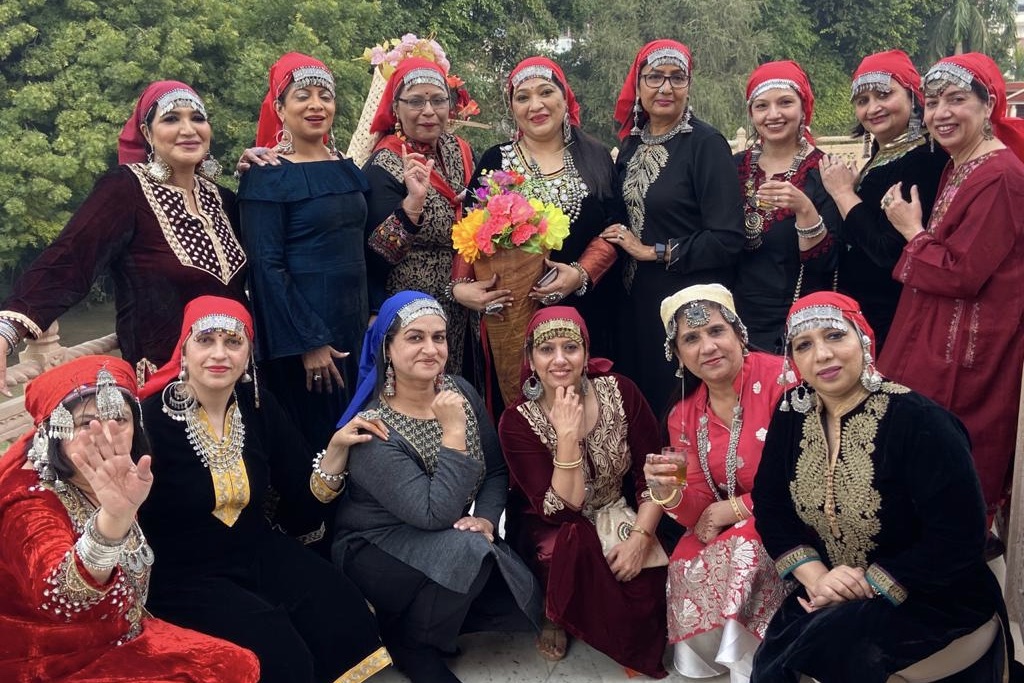
Of the many nuggets of wisdom my patients have imparted, this one is my favourite. An elderly tau once told me the secret of a happy life. With a twinkle in his eye he said,” Zindagi neh badhiya banane khatir do unche, do suche aur do lucche dost chhavein”. ( for a happy life you need two well placed, two enlightened and two unruly friends). He insisted that I shouldn’t dwell on the literal meaning of this rustic gem but understand its essence. I was suitably intrigued by his statement. In a society where we teach ‘ blood is thicker than water’ does friendship stand a chance?
While the advantages of living amongst well connected and spiritual beings are obvious, it is the third kind of friends who make life wholesome. Friends with whomyou can be yourself, who will accept you with your bristles, sans the alluring facade. R. W. Emerson understood this need when he said, “It is one of the blessings of old friends that you can afford to be stupid with them.” And it is not about stupidity alone. We also learn from such friends, things, which may appear frivolous but assume significance when a situation arises where they become relevant.
Friendship can be built on similar interests or a single goal. It could be based on shared experiences or a common past. It could be group friendships among neighbours or colleagues. With modern technology it could also span across the world, people who have never met but know each other intimately through social media and electronic mail. Friendship can bridge age, gender and religious disparity. Mutual trust and generosity are all that is needed.
Friendship means different things to different people at different stages of life. Most women tend to think in terms of sharing and giving whereas men think of having fun. Conversation, which is the mainstay of the relationship also differs. Men engage in intellectual and sociopolitical matters while women connect at an emotional plane. Age also plays a factor. Schoolgirls tend to be gossipy, young married women sound off worries about husbands and in-laws and in later life children become the focus. Comfort, advice and practical help are the rewards. Friends are mood boosters and good for the morale. There is no situation in life which can’t be made better with a good old chin-wag with an attentive and concerned friend. Sharing an experience inevitably brings comfort by fulfilling the need to understand and be understood.
Friendship isn’t just about fun, fellowship and emotional health but can improve physical health, too. A recent study followed nearly 1,500 elderly people for 10 years. It found that those who had a large network of friends outlived those with fewer friends by almost 20% . One explanation could be that good friends stop you from indulging in risky behaviour and encourage healthy choices. Friends also ward off depression, boost self-esteem and reduce stress. Surprisingly research shows that family relations do not contribute to such longevity. This could be attributed to the expectations which creep into family relations. They inevitably cause resentment and undo the benefits of companionship. Friendship is relatively free from this drawback. Also, the fact that we can choose our friends while relatives are bestowed on us makes the former more acceptable.
The importance of friends grows with age. Youth is spent in consolidating careers, family ties and bringing up children. As middle age approaches and life settles down there is more time for friends. Also, by this time, most people have faced some crisis in life. With ageing parents and partners who might be part of the problem it is natural to turn to friends for support. As people age further they become more choosy about friends and genuine friendships emerge that are deeper and more meaningful.
Although being social and having friends are two different things, both prolong life. The bad news is this bond may be in trouble. A slew of sociology studies conducted in the US found that Americans have become more socially isolated over the past few decades. Also the number of friends people felt they could confide in fell from an average of 2.94 in 1985 to 2.08 in 2004.
As the world continues to evolve and get more complex, sehat aur saath ( health and companionship) will always be the two basic human needs. So whether uncha, succha or luccha, value a friend who cares for you, ensures your well being and with whom you can share intimate secrets or irrational fears. Cherish a friend who celebrates your success and grieves your loss. Respect a friend who disagrees with you but loves you all the same. Humour a friend who helps you soar as you enumerate your lofty achievements and then pricks your swollen ego.
Friends of all kinds are a sound investment. So whether it is going out for a movie, shopping together, planning a holiday or having a heart to heart chat over lunch. Nurture them all. And if, apart from family you have six people in your life for whom you will drop whatever you are doing and rush to their rescue, Happy friendship day to you.
That they will return the favour is a given!
( published in my Sunday column in the Tribune on 7/8/2016)